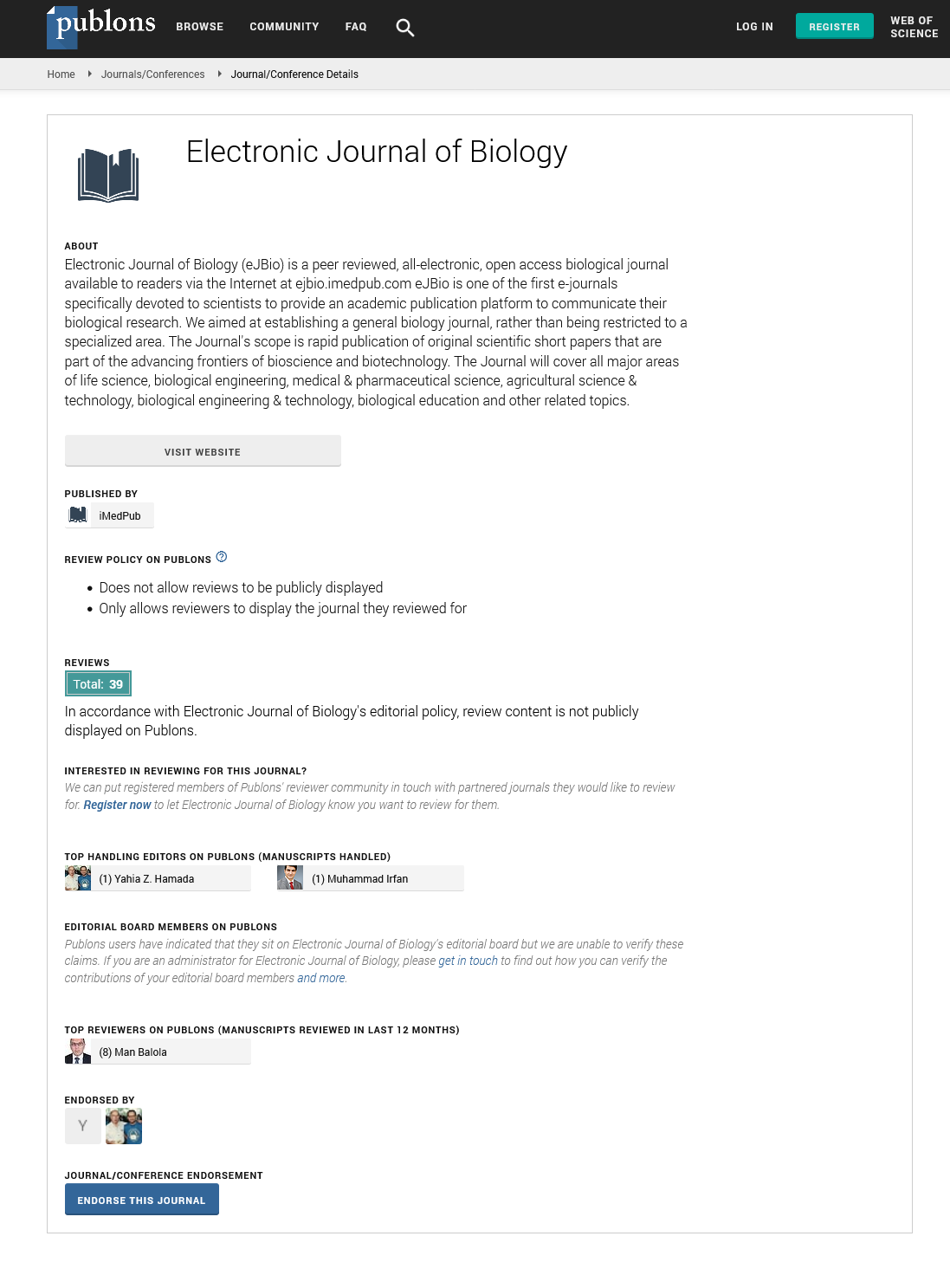Abstract
In vitro Propagation of a Tuberose Plant (Polianthes tuberosa L.)
The tuberose plants are gaining an importance in pharmaceutical and perfume industries because of their peculiar secondary metabolic reactions for the synthesis of various commercial valuable compounds. Although tuberose plants are having a limitation to grow in nursery in worm countries, like India, so that a tremendous application of plant tissue culture has been used for in vitro cultivation of such plants. In this present work, the influence of growth regulators on in vitro shoot formation and regeneration was studied in a tuberose plant Polianthes tuberosa L. Rhizome was used as explant to culture on solid Murashige and Skoog (MS) medium containing different concentrations of indol-3-acetic acid (IAA) and/or 6- benzylaminopurine (BAP). The presence of BAP (1.5mg/l) was showed higher explant regeneration and shoot differentiation frequency (2.2±1.2 shoots/explant), producing about three fold as compared to control. After regenerating this plant through tissue culture, the leaves of the same plant was used for plant chemicals analysis qualitatively, suggested the some of the metabolites were enhanced with more extent. Thus, this work presents an appropriate proportion of BAP and IAA will, perhaps, be helpful for regeneration and cultivation of this plant in small scale nursery.
Author(s): Sangavai C., Chellapandi P.
Abstract | Full-Text | PDF
Share this

Google scholar citation report
Citations : 5001
Electronic Journal of Biology received 5001 citations as per google scholar report
Electronic Journal of Biology peer review process verified at publons
Abstracted/Indexed in
- Google Scholar
- China National Knowledge Infrastructure (CNKI)
- CiteFactor
- Electronic Journals Library
- Zoological Records
- WorldCat
- Proquest Summons
- Publons
- MIAR
- Openaccessarticles.com
- Secret Search Engine Labs
Open Access Journals
- Aquaculture & Veterinary Science
- Chemistry & Chemical Sciences
- Clinical Sciences
- Engineering
- General Science
- Genetics & Molecular Biology
- Health Care & Nursing
- Immunology & Microbiology
- Materials Science
- Mathematics & Physics
- Medical Sciences
- Neurology & Psychiatry
- Oncology & Cancer Science
- Pharmaceutical Sciences


